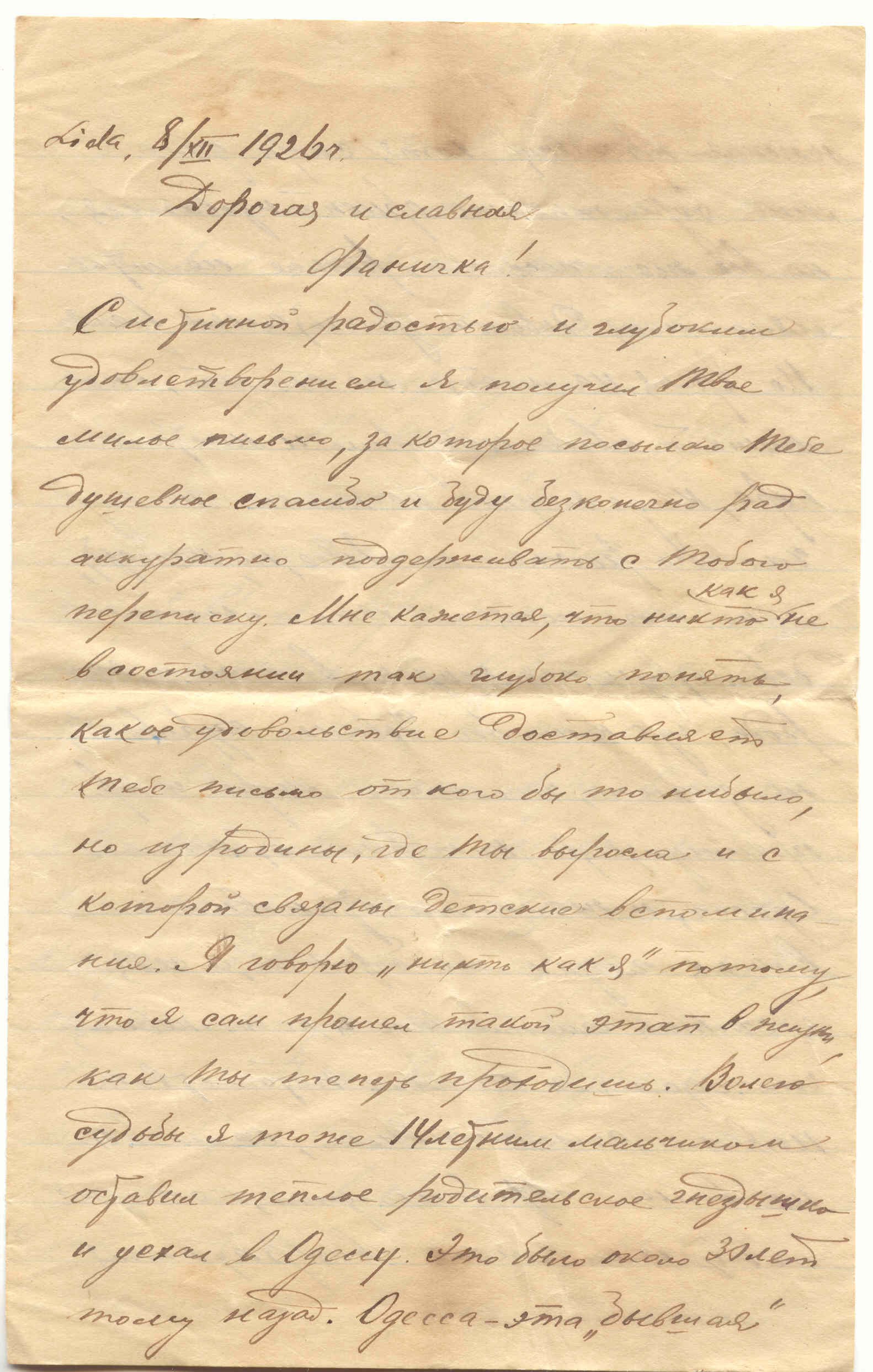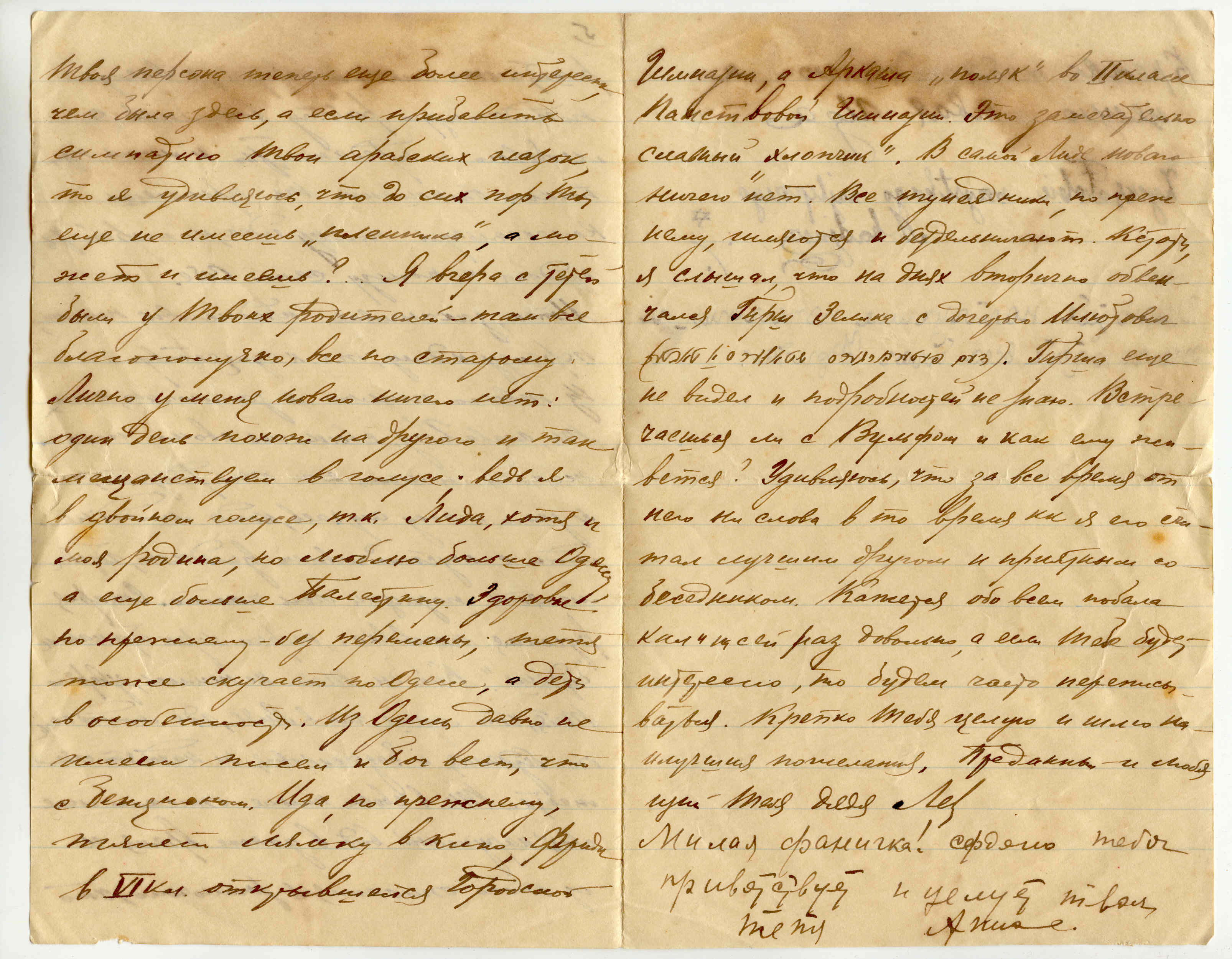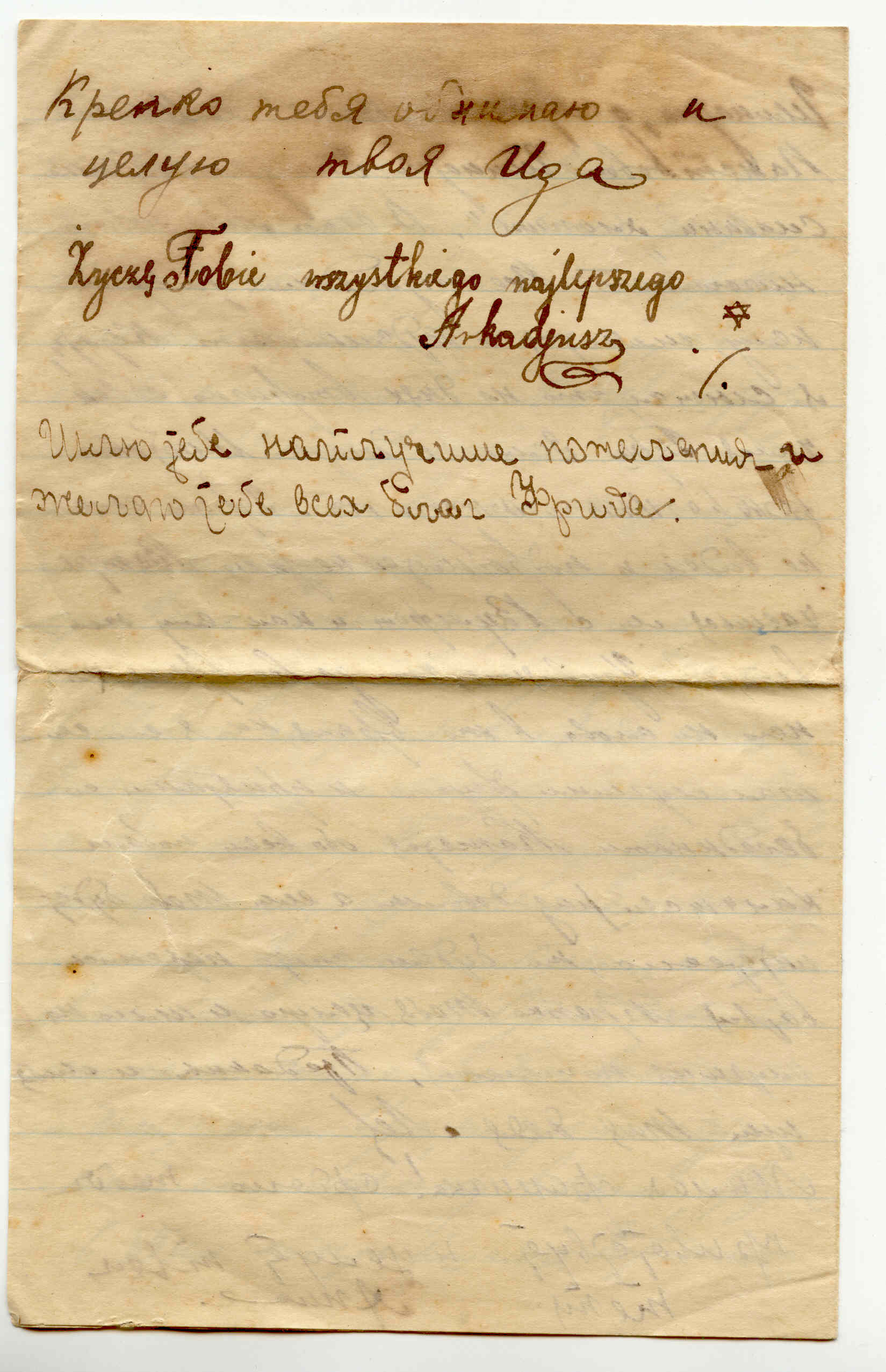 Letters from Lida - 7, 71
Letters from Lida - 7, 71
Translated by Lena Gorina-Black
Translator’s note: This letter is, from the vocabulary and style, written by a well-educated person, probably a member of the Bund. The “war and revolution” which made him and possibly his family return to Lida were either World War I, the Russian Revolution in 1917, or the increase in antisemitic pogroms which occurred during the civil war in the nascent Soviet Union (1918-1921), when "kill the Jews and Bolsheviks" became a motto of some groups. He also may have wished to avoid fighting on some side of the civil war or/and returned to Lida to be on the Polish side of the Polish-Russian border (during the Polish-Russian war of February 1919 – March 1921, the Red Army and Polish Army entered and left Lida, and after the 1921 peace treaty, Lida officially belonged to Poland).
This letter was accidentally split into two parts at some time.
Lida, December 8. 1926
My dear and
lovely Fanichka!
With true joy and deep satisfaction I received your nice
letter, for which I thank you from all my heart, and will be immensely happy to
keep our corresponding regularly. It seems to me that nobody besides me is
capable to understand so deeply what a pleasure is to receive a letter from
your homeland, where you grew up and where all your childhood memories are. I
am saying “nobody besides me” because I have had a period in my life similar to
what you are going through now. It was my fate to leave behind the loving nest
of my parents at 14 years of age and go to
My dearest! I know, this particular period of your young
life is hard and not filled with roses, but the holy sense why you took on
yourself this heavy burden, why you decided to part from your relatives and
sacrifice everything that you were capable of, will give you strength and
energy to work and to fight for the benefit of our people and our holy wanderer<probably
means Jewish people>. I am sure that in this hard work and struggle you will
also find your personal happiness.
Most importantly, my dearest, do not be sad about leaving your motherland, here <not clear> life is hard and not happy at all. Of course, I am not talking about little bourgeois mammy’s girls who, absorbed in their personal interests, do not care about the future of their own people.
The first page of the letter

Page 5
absolutely any job, every work that you happened to do,
perform with love and devotion and only by doing that you will bring a colossal
goodness to the idea to which you are faithful, and also to yourself.
So, finishing the foreword to this letter I will get to the
subject, that is, to the substance.
From your letter I made a conclusion that you, thank God,
are used now to your circumstances and that makes me happy, but I know of many
occasions when young people with unstable views were ready to change their
positions too often. As an old Russian proverb says: “Endure, kazak, and you
will be a chief.” In whatever conditions you live over there, I assure you that
it is better than in Lida., where youth cannot find a place because of nothing
to do and the surrounding stupidity. In your letter you described for me your
looks at this time and from this description I make a conclusion that your
personality is even more interesting than it was here, and if to add
attractiveness of your Arabic-looking eyes I am surprised that you still don’t
have any “captive,” or maybe you already have? Yesterday, I was at your parents with your aunt, and
everything is the same over there, as it was. I personally don’t have any news,
one day resembles another, and that is how we lead our prosaic life <golus
?> in Lida, and to me it is even doubly prosaic because, although I was born
in Lida, I love Odessa more, and even more I love Palestine. My health is as it
was before, without changes, your aunt also misses
Dear Fanichka! With heartfelt regards and kisses, your aunt
Anisa.
Hug and kiss you with love, Your Ida
<Polish>
Arkadiush <star
of David symbol>
I am sending to you my best wishes and wish you all the
best. Frida.
Middle portion of the letter, with Uncle Lev's signature and note from Aunt "Anisa" at the bottom right

Last page of the letter with notes from Ida, Arkadiush, and Frida

This is the end of
letter 7. Lev is her paternal uncle, married to Channah Tsigelnitsky – “Anisa”.
(1) Benyamin – Possibly a brother-in-law? The name does not
appear in the Pupko family at this time.
(2) Besides the obvious movie theater position of cashier, Ida might
have sung before or between shows, or she might have been the
accompanist for silent films. -- That is what we'd think from an American perspective. However, this era was the Golden Age of Yiddish theater in the Soviet Union, so she might have been involved in any of a number of positions in a live theater, as well. This link, to a review of the exhibtion, might be more permanent.
(3) Lev and Channah’s children were Frida, Ida, and Aharon –
Arkadiush, Arkasha. The entire family was murdered in the Holocaust.
(4) Girsh Pupko, son of Abraham Pupko, one of Lev’s
brothers. His wife’s name was
This page is hosted at no cost to the public by JewishGen, Inc., a non-profit corporation. If you feel there is a benefit to you in accessing this site, please consider participating through Jewish-Gen-erosity. Thank you very much.